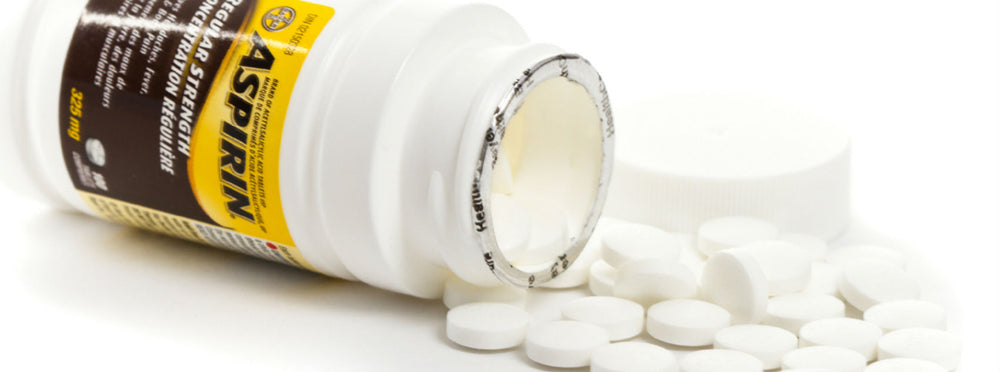Doctor, should I take aspirin?

It’s one of the most common questions I get when I see patients. And the answer is not as straightforward as you might think.
Even though it’s an over-the-counter medication, aspirin is still a drug. Which means it not only has effects, it also has the potential for side effects. And whether or not someone should take the drug depends on whether the likelihood of a benefit outweighs the likelihood of harm.
So why take aspirin anyway?
Aspirin is a mild blood thinner. And the seminal event that leads to a heart attack or stroke is the formation of a blood clot in a heart or brain artery. The substrate for the blood clot is atherosclerotic plaque that becomes unstable due to high cholesterol or poorly controlled blood sugars, or cigarette smoke, or high stress, or just bad luck. Given that cardiovascular disease is the number one cause of death, preventing these dramatic clot-related events with an inexpensive daily pill seems like a pretty good idea. By the way, there is a difference in how the two genders respond to aspirin - men appear to get more protection against heart attack and women get more protection against stroke.
What’s the downside?
Side effects from aspirin include allergy, general bleeding risk, upper gastrointestinal or stomach irritation and bleeding, and stroke-related bleeding into the brain. Practically speaking, true aspirin allergy is very uncommon and the risk of bleeding side effects is low. However, risk of a serious side effect does go up with age.
For example, in aspirin takers, serious upper gastrointestinal (GI) side effects are seen in:
- 8 out of every 1,000 men, and 4 out of every 1,000 women under age 60
- 24 out of 1,000 men, and 12 out of 1,000 women age 60 to 69.
- 36 out of 1,000 men, and 18 out of 1,000 women age 70 to 79.
Mixing aspirin with other nonsteroidal anti-inflammatory drugs (NSAIDs), such as ibuprofen, increases the risk of GI complications - as much as three to four times.
So when does benefit outweigh harm?
The data is very clear that patients with known cardiovascular disease benefit from taking daily aspirin (typically 81 mg – the “baby” dose). This includes patients who have had a heart attack, stroke, bypass surgery, stent, have failed a stress test or have demonstrated presence of atherosclerosis by other imaging evaluations (such as coronary calcium CT testing or vascular ultrasound). If you meet any of these criteria, in the absence of a true aspirin allergy or history of dangerous bleeding while on aspirin, nearly all physicians will recommend that you take this drug every day - indefinitely.
What if you don’t already have heart disease?
According to the US Preventive Services Task Force, if you are a man younger than 45 years of age or a woman under 65, the chances that you benefit from daily aspirin is low and routine use is not recommended.
If you don’t fall into those “safe” age categories, a calculator can be used to ascertain a person’s 10 year risk of experiencing a cardiovascular event based upon individual inputs. If the calculated cardiovascular risk is 6% or higher, it is felt that the benefits of aspirin potentially outweigh the bleeding risks.
What should you do next?
If you have heart or vascular disease and you are not taking aspirin, ask your physician if you should be on this medication or on an alternative blood thinner.
If you don’t have heart disease and fall outside of the “safe” age ranges mentioned above, use the risk calculator to see if aspirin might make sense for you. But before starting or stopping aspirin on your own, check with your doctor to make sure this step makes sense for you given your unique health circumstances. Remember - aspirin is a DRUG and use or non-use should not be approached lightly.
What if I can’t take aspirin?
Regardless of whether or not you fall into a group that may benefit from aspirin therapy, remember what the aspirin is doing – it’s preventing heart attacks and strokes after the atherosclerotic plaque becomes unstable. The chance that plaque becomes unstable is markedly reduced if you eat the right foods, move your body, stop smoking and de-stress. No amount of blood thinning can make up for those fundamentals.
At Step One, we're all about fundamentals. We exist to help make the "eat right" part easy.

Tested & Proven Results.
- Cardiologist formulated
- Supported by over 500 publications
- Clinically-proven, in a double-blind randomized trial with Mayo Clinic and The University of Manitoba
80% of participants lowered their cholesterol in just 30 days. With just two servings per day, Step One Foods offers a proven-effective way to naturally lower LDL (bad) cholesterol.
Get heart health tips and articles like this, delivered right to your email.
New articles every week.
You may also like...

Spring Into Heart Health: The Best Seasonal Foods to Eat Now

You don’t need to avoid foods with cholesterol…except for these



